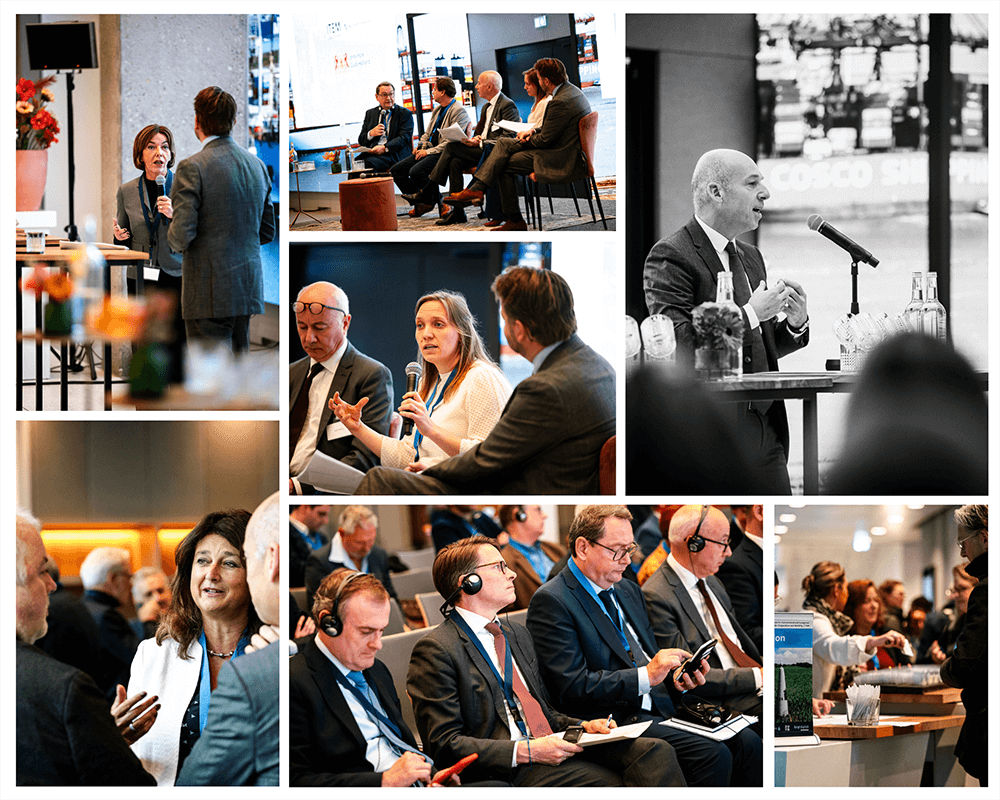 |
| Retrospect on the ITEM Annual Conference |
On Friday 17 November 2023, the ITEM annual conference was held at the county hall in The Hague, focusing on the theme of mobility and infrastructure. The joint finding was that much remains to be done to raise awareness of the necessary priority, to deploy (existing) instruments and the possibility of deviating from existing regulations and to proactively draw up border impact assessments. Only then can transnational issues and cross-border cooperation go hand in hand and be strengthened.
Kees van der Burg (DG Mobility of the Ministry of Infrastructure and Water Management speaking on behalf of Minister Mark Harbers), also stressed the importance of border regions. "Good infrastructure and public transport are essential elements when it comes to broad prosperity, which applies to all regions in the Netherlands and our neighbouring countries in particular. Our cooperation makes it clear that the border regions are not in a remote corner of our countries but in the heart of Europe," Van der Burg said.
ITEM director Prof. Dr. Anouk Bollen-Vandenboorn closed the annual conference by concluding: "If you want to move forward from a transnational objective you need cross-border cooperation, but the methodology to get to that point sometimes falters. But we are fortunately all aware that if you start looking at a construction where deviation is possible that it will be supported". "ITEM will continue to provide substantial input, support and help to take this forward."
|
|
|
|
|
|
 |
| NEXT ITEM - Nieuwspoort |
| Border region must be top-of-mind
"Border regions as gateways to Europe" (Veerle Brink) Cross-border cooperation is not a foregone conclusion and requires continuous attention and investment, a concrete approach and sometimes requires tailor-made adjustments for the region because, after all, every region counts, including the border region! ITEM analysed the plans of the 15 major parties in the light of cross-border cooperation and the future of border regions. What are the plans for the relationship between national government, region and neighbour in the areas of labour market, healthcare, broad welfare, energy transition and mobility? What are the effects for the border regions? Are there any topics we are missing? To map this out, ITEM analysed the plans of the parties participating in the Lower House elections and reflects on them from a cross-border perspective: ITEM Reflection: Lower House Elections from a Cross-Border Perspective
Nieuwspoort
On Thursday 16 November, we discussed the outcomes of this reflection during the event NEXT ITEM - NIEUWSPOORT: Lower House elections, are the border regions in the picture? During a lively discussion, we talked to candidate MPs Martin de Beer (VVD), Inge van Dijk (CDA), Romy Frijters (VOLT) and Veerle Brink (D66) about cross-border cooperation and the perspective of the border region. Are border regions top-of-mind among policymakers? Is there enough attention for border-specific situations and what about the coordination with our neighbouring countries? Unanimously, the candidates indicated that more attention should be paid to border regions and cross-border cooperation. |
|
|
|
|
|
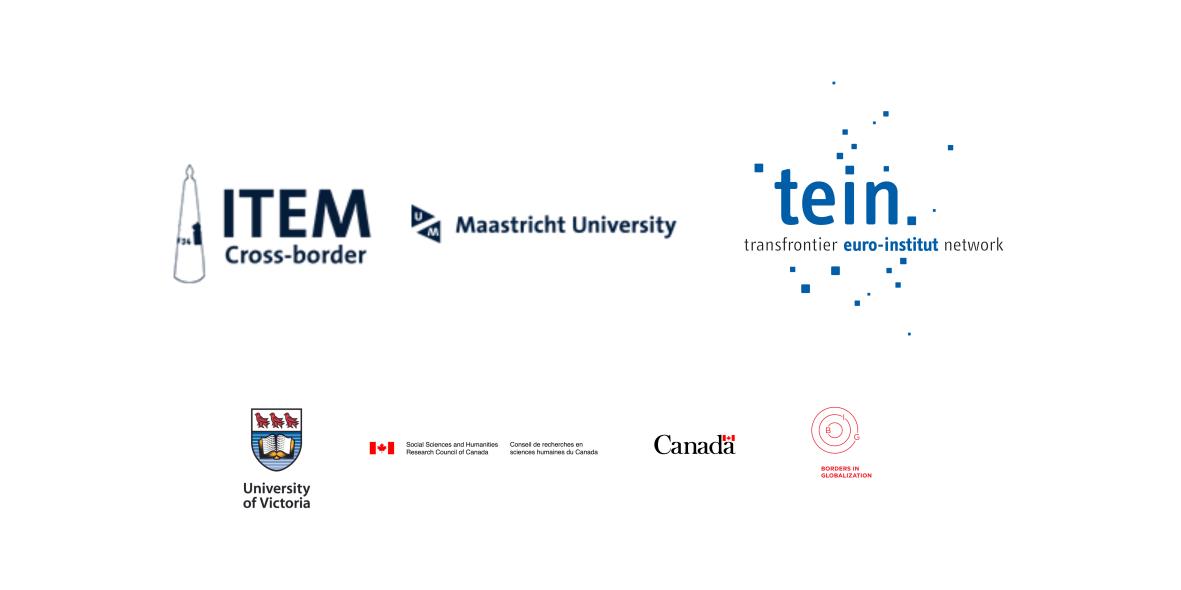 |
| TEIN ANNUAL CONFERENCE 2024 – Call |
26 / 27 SEPT. 2024: THE FUTURE OF CROSS-BORDER COOPERATION AND MOBILITY: HORIZONTAL INTEGRATION AND BEYOND
This 2-day Conference (co-organised by the Institute for Transnational and Euregional cross-border cooperation and Mobility (ITEM) and the Transfrontier Euro-Institute Network (TEIN) addresses the practical challenges and prospects of future cross-border cooperation and mobility and advances debates and policies outlooks around and beyond the concept of horizontal integration. ITEM and TEIN invite you to submit individual paper proposals and panel proposals on a wide variety of topics and issues that speak to the general theme of the 2024 TEIN Annual Meeting: The future of cross-border cooperation and mobility: horizontal integration and beyond.
Deadline for paper and panel proposals: 31 December 2023 |
|
|
|
|
|
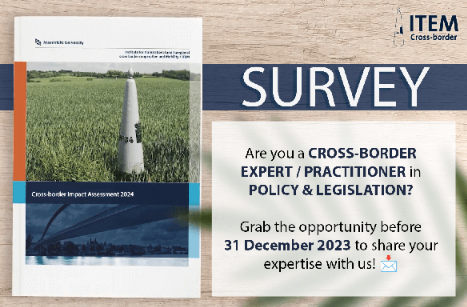 |
| Survey on potential cross-border issues in 2024 |
We kindly invite you to participate in our survey for our Cross-Border Impact Assessment 2024.
Survey Details:
- Validity Period: Until December 31, 2023
- Time Commitment: Approximately 10 minutes
ITEM strives to research the effects of legislation, policy and enforcement on border regions by analysing, publishing and discussing the most interesting and current issues in-depth. The primary focus is on the border regions between the Netherlands, Belgium, Germany and Luxembourg. This survey allows policy makers, administrators, (academic) experts, and practitioners in the field of transnational and cross-border mobility to contribute to this process.
Thank you in advance for your time and commitment. Your observations on legislation, policy and enforcement measures at the European, national and regional level provide an indispensable contribution to the ITEM Cross-Border Impact Assessment. |
|
|
|
|
|
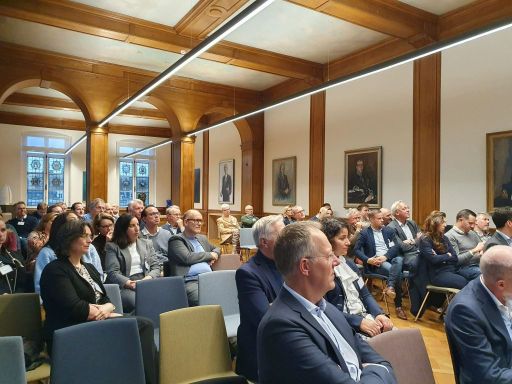 |
| Maasdalseminar |
On Friday 10 November last, the annual Maasdalseminar took place with the title "Duty of care and choice guidance: what is required; what is needed?". During this in-house event - for employees of UM, AZL, APG and DSM Pension Services - led by chairperson of the day Prof. Dr. Anouk Bollen-Vandenboorn - four speakers discussed the worries the pension sector faces when it comes to choice guidance and setting it up correctly. To what extent does 'duty of care' require more 'activity' from the pension provider than merely informing and providing insight in accordance with the old Pensions Act? What legal considerations play a role here? How should a pension fund choose its position within this? Is the AFM not overcharging the pension sector with its guidance as laid down in the provisional guideline on choice guidance? Do more choices cause choice stress or not? Does it benefit a pension fund to conduct a participant survey? These tensions could be traced back to the central question: what is required and what is necessary?
Speakers: Peter de Groot (DPS); Prof. Dr. René Maatman (RUN), Maarten van der Tuin (Montae & Partners); Najet Yacoubi (AZL). |
|
|
|
|
|
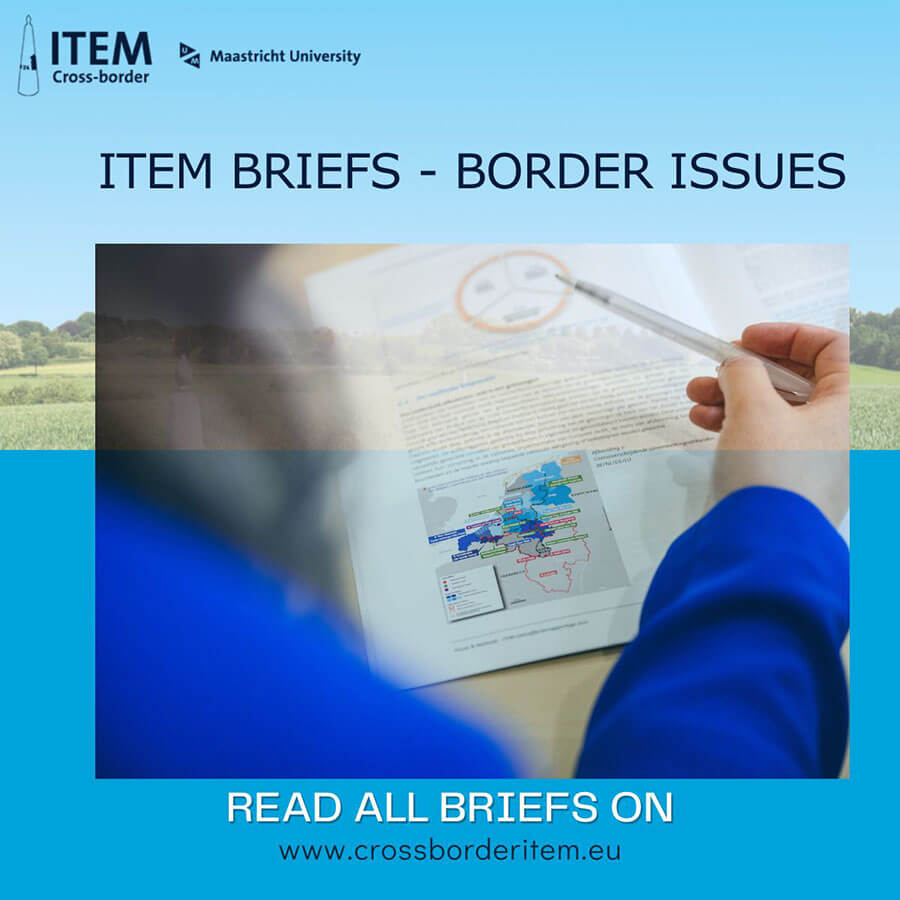 |
| NEW!
ITEM Briefs aim to inform you about different border-related issues and developments, that are topical and relevant. The Briefs cover a wide range of topics and areas and will be published weekly on our website.
The first one has been written by our Senior Researcher Math Noortmann on:
The BENELUX Police Convention: A major step forward in cross-border crime control
On 1 October last, the new Treaty between Belgium, Luxembourg and the Netherlands on police cooperation finally entered into force (in short BENELUX Police Treaty). This happened more than five years after the treaty was signed in 2018. This treaty replaces the 20-year-old Convention on Transnational Police Action (2004) and can be seen as a special milestone in cross-border crime control. The treaty not only provides more possibilities for the “exchange of personal data and information”, but also allows police forces to continue “cross-border action” “on their own initiative”. That one sovereign country’s police may “observe”, “track” and “pursue” in another sovereign country is unprecedented. The BENELUX thus settles an important (jurisdictional) wall in cross-border crime control and perhaps initiates a new development in the European Union in terms of day-to-day cooperation between services in border regions.
|
|
|
|
|
|
|
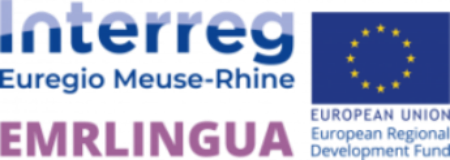 |
| EMR-Lingua closing conference |
We are proud to share the successful final conference of the INTERREG V-A project EMR-Lingua, which took place from 15 to 17 November 2023. This project promoted the knowledge of neighbouring languages (Dutch, French, German) in the Meuse-Rhine Euregion and resulted in the establishment of the Euregional Centre for Neighbouring Languages.The conference marked the end with the presentation of two crucial research reports:
1. Legal and administrative obstacles in the mobility of secondary school teachers in the Euregio Meuse-Rhine (EMR) By: Susanne Sivonen
Policy recommendations to overcome obstacles and promote the exchange of teaching staff.
2. Connecting through education in a border region. Why schools in the Meuse-Rhine Euroregion do/do not invest in neighbour language education and Euroregional school activities By: Dr Daan Hovens
Insights and recommendations to make neighbour language education sustainable in the Euroregion, especially in secondary education.
Both reports and their summaries can be found on our website.
|
|
|
|
|
|
|